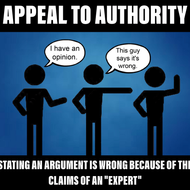New analysis of incomes. Top 1% gained $21 trillion while bottom 50% lost $900 billion. [commondreams.org]



Enjoy being online again!
Welcome to the community of good people who base their values on evidence and appreciate civil discourse - the social network you will enjoy.Create your free account
3 comments
Feel free to reply to any comment by clicking the "Reply" button.This study is a little manipulative in the way they display the data. To get the figures in the table from the federal reserve, the author subtracted durable goods ( tangible items such as cars, fridges, furniture ) and then adjusted everything to 2018 dollars. When you take this fact into consideration, and the fact that most of the money that the bottom 50% owes is in consumer credit, the picture changes drastically from the article.
The poor spend money they don't have on things they don't need and the rich own businesses that make money.
On top of this, I still fail to see any problem with wealth inequality. If someone works hard and gains wealth, they should get to keep it. In fact, it's in the best interest of everyone to let those most qualified to handle wealth manage their assets. Imagine if you will, if everyone with any disposable wealth gave it all to someone like Warren Buffet, who averaged about 21% per year returns. That would mean that on average, every $1 you gave would return $1.2. It doesn't take a genius to see how that would be best for everyone over time.
@ToolGuy The majority of millionaires are self made, not inherited. [chrishogan360.com]
When someone makes money from someone else's labor, it's because the laborer voluntarily sold their time and skill. Knowledge and time are assets, with the latter being most evenly distributed because of our mortality. It's a fair trade because slavery has been abolished.
Consider someone who buys iron ore and smelts it into steel then sells it for profit. The miner benefits from selling the ore, and the foundry from making steel. The same is true for jobs. The mine owner might not know anything about geology, and the foundry owner only a working knowledge of how ore is made into metal. So the workers get paid having the required skills and knowledge. Their time and knowledge is as critical a resource to producing these goods as the raw materials themselves. The reason the laborer's don't get a larger portion of that profit is because they are willing to work for less.
While I do agree that there is a strong connection between wealth and policy creation, I don't see a need for an economic solution here, rather I think there just needs to be either greater restriction on lobbying, and/or changes in the ways campaigns are funded.
The system of corporate benefit from government research has had undeniable positive effect on our civilization. IMHO, all research and technological development should be centralized and the results reaped by the people. This is one of the very few exceptions I make to centralized power. If you have a good argument against this, we should debate this someplace that isn't here because it's a different issue.
@ToolGuy Even a service economy follows the same rules. The benefit to society from such organizations is what is important, not necessarily material wealth. A society benefits from having a bank, and especially benefits from a bank that is finding investments and and relocating wealth to fund those projects, then taking a small cut for doing so. The 2008 financial crisis had devastating ripple effects as a result of failures in this sector.
@ToolGuy How so? Financial institutions more or less rely on a growing economy to make money, I don't think anyone with more than a high school diploma will disagree with insurance, and real estate lets people live somewhere without the need to actually buy a home. In every situation, the investor only gets a small amount, and only achieves wealth by doing what they do at scale.
@ToolGuy Can you show me the research and facts?
I can show you evidence that suggests that public policy has been abused leading to the LA housing crisis. The slow rate of housing development is due to high taxes, heavy environmental regulation, and bureaucratic complication.
Housing prices are not high because landlords are greedy, if they were they would lose business to leaner more efficient competitors willing to accept a smaller paycheck.
@ToolGuy So from what I can gather, Robert Reich who isn't Micheal Hudson says that we should give the working class more money so that they can spend that money on goods and services and create incentives to grow the economy.
In order or new businesses to be created someone has to invest the capitol to begin with, meaning that this is most efficiently accomplished if the wealth is in the hands of a few, meaning this system of giving additional disposable wealth to your employees will be counter productive to actually grow the economy.
I find his critique of government subsidies to only focus on the business side, wile literally painting the picture of politicians to look like losers. Politicians agree to give businesses subsides for all kinds of reasons, such as to spur development or to create an incentive for new businesses.
Trickle up economic theory is just as ridiculous as it's imaginary counterpart.
Bernie's been telling us this, and what to do about it, for Decades.
This intersection is a few blocks from my house - I thought it was interesting
Nice one, just goes to show that nothing really changes, just the faces are different!
Enjoy being online again!
Welcome to the community of good people who base their values on evidence and appreciate civil discourse - the social network you will enjoy.Create your free account
Share this post
Categories
Agnostic does not evaluate or guarantee the accuracy of any content. Read full disclaimer.






